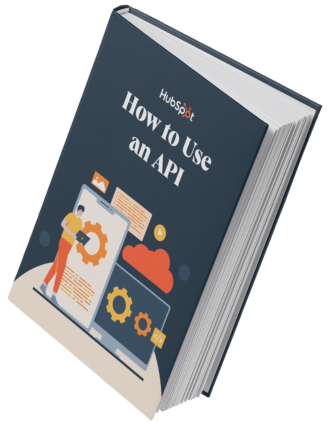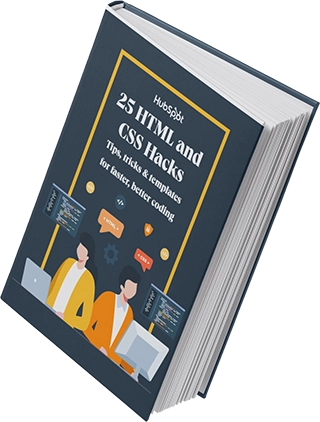12 Essential Book APIs
No matter what kind of book data you want to pull, here are 12 APIs that can help you out.
1. Google Books API
Google Books API allows developers to fetch Google Books data for their applications. With this API, applications can conduct full-text searches for books. Developers can then get information related to ratings, reviews, and author information.
Two authentication methods are available to use this API — key-based and Oauth2. Key/value pair-based authentication is the most popular option. Here you signup for developer access to API and use the key/value pair to make API requests.
What we love: Google Books has detailed documentation about its APIs with many examples and use cases. Plus, the program’s embedded viewer lets you embed book content inside your website or web application.
Best for: Full-text search, which allows you to search text within books.
2. Internet Archive API

Internet Archive is a nonprofit under 501(c)(3) organization that contains archives of thousands of books, websites, videos, pictures, and documents. Like any traditional library, they offer anyone free access to information stored in digital format.
Internet Archive started digitizing the book in 2005. Today, the site scans almost 4,300 books per day, spread across 18 locations around the world. According to their website, Internet Archive has almost 41 million books and texts archived in their database.
The information organized by Internet Archive is divided into three parts — items, collection, and metadata. Books, videos, and PDF documents are considered all considered items. Items placed in groups, such as European Libraries, are called collections.
Test the API in this sandbox. The PHP SDK is also available on GitHub.
Best for: A free explorer to navigate all of Internet Archive’s books. You can use it to customize your own API calls.
What we love: Internet Archive collaborates with Open Library to provide access to books published before 1927.
3. Open Library

Open Library is a nonprofit project from Internet Archive, offering a way to browse and read books for free. They have nearly 30 million titles available in a database, and this information is constantly updated.
Open Library has detailed information about individual books, including cover images, pages, and book content. They are working towards building web pages for every book ever published, providing access to download databases.
Developers can use APIs to retrieve book records, such as contents, subject headings, and cover images for available books. You can also search within books. Open Library APIs can return as in JSON, YAML, or XML formats.
What we love: Open Library has detailed documentation and client libraries developed in Python for developers.
4. Amazon Books API

Amazon’s ecommerce store has a huge database of books. Developers can access book data and build custom applications using their product advertising API.
The product API is very vast and not limited to books. Developers can get information about any product sold on Amazon. You can search for books using any variable, such as ISBN, title, or author.
To access this database, developers must register their accounts under Amazon Associates Program. This allows developers to become affiliate partners with Amazon to sell their products. Once you access their associate program, you can use APIs to build applications specifically to sell books.
What we like: Amazon’s APIs offer easy integration with a wide range of available SDKs for popular software programming languages. This makes the life of a developer much easier and facilitates integration faster.
5. The New York Times Books/Bestsellers API

The New York Times offers a wide range of APIs to developers who want to build custom applications using the publication’s data. Their APIs are based on restful architecture, and calls can be made via HTTPS.
Most popular APIs offered by NY Times allow access to archived content, articles, books, and top stories. The publication’s books API provides access to their bestseller lists.
Four API request methods are available to developers — bestseller lists, book reviews services, the history of a best seller, and the names of NY Times bestseller lists.
According to the New York Times’ developer portal, all API requests must include an API key within the query string. Examples of the sample request URI patterns can be found on their developer portal with API documentation.
Like other API providers, they have a cap of 4,000 requests per day, limited to 10 requests per minute. You should keep a six-second gap between calls. For applications that require higher limits can contact code@nytimes.com.
What we love: One API provides complete reviews about NYT books. You can provide ISBN, title, or author name to call this API.
6. ISBNdb API

ISBNdb was founded in 2002 and is the oldest books database. Their database has more than 32 million book titles available.
You can use this API to access detailed information about books with 19 data points, such as weight, pages, author, publisher, publishing date, ISBN10, ISBN 13, etc. With this API, you can also browse book data by content categories.
Unlike other APIs, it is not free to access their data. They offer three different plans ($9.95 monthly, $19.95 monthly, or $45.95 monthly) based on your needs.
For default users, they capped limit restrictions to 1 API call per second across all endpoints, whereas premium users can make three requests per second. Check out complete documentation about the ISBNdb APIs available on their developer portal.
What we love: ISBNdb provides book prices from different retailers, making it a reliable source for comparing book prices.
7. WorldCat

WorldCat is one of the largest library networks with more than 10,000 libraries participating. Using their APIs, you can access complete bibliographic details and integrate them into your web applications or website.
Their API is referred to as “WorldCat Search API” and allows you to get information about books such as ISBN, ISSN, and other identifiers. According to their website, they have more than 90 million entries, along with titles published before 1980.
Their API access is free but limited. You can only access WorldCat Search API if you are affiliated with any of the libraries that contribute to WorldCat services. Complete documentation about the APIs can be found on their developer portal.
The best part of their APIs is the ability to perform multi-lingual searches on various titles. They have German, French, Spanish, Portuguese, Japanese, Chinese, Hindi, and Arabic books.
8. Bookshare API

Bookshare is the world’s largest online library making books accessible to people with disabilities. They resolve the technical challenges of bringing books to people who live with vision impairment or any other physical disability that blocks them from accessing print media.
For implemented Bookshare rest APIs, developers need application keys. If developers create applications for different devices, they need different keys for each device.
To obtain the application key, you can email partner-support@bookshare.org with the details of the application you are building.
9. Penguin Random House Books

Penguin Random House offers their B2B partners restful API services to create custom applications. These APIs can fetch bibliographic data about books and descriptive text such as excerpts and authors. Like other APIs, you can call book cover images, along with other data points.
This API is very simple to integrate, and you don’t need any keys to access data.
Penguin Random House also offers an Insight Service API, which allows applications to search and view digitized content within books. With the insight service API, developers can conduct full-text keyword searches to find information inside the book.
We can also see pages inside the books returned as image formats for an optimal experience.
10. Merriam-WebsterAPI

One of the most popular dictionary APIs is the Merriam-Webster Dictionary API. This API allows users to access over 200,000 definitions, synonyms, antonyms, and more. You can also access audio pronunciations, example sentences, and word origin information.
The Merriam-Webster Dictionary API is free for non-commercial purposes, with paid plans available for commercial use. The API can be easily integrated into web and mobile applications, making it a versatile tool for various projects.
11. Oxford Dictionaries API

The Oxford Dictionaries API is another popular choice for developers looking to incorporate dictionary and word-related data into their projects. This API allows users to access over 350,000 words and phrases, with definitions, synonyms, antonyms, and example sentences available.
Developers can use the dictionary data to build games, bots and AI, learning tools, research, and more. The Oxford Dictionaries API also offers advanced search options, allowing users to search for specific word forms, idioms, and phrasal verbs.
The API is available in multiple languages, making it a versatile tool for international projects.
12. Joomag API

Joomag allows users to create and publish digital magazines, brochures, and other publications. The Joomag API provides developers access to this platform, allowing them to build custom publishing solutions and integrate Joomag's features into their applications.
Developers can use the Joomag API to create custom publication templates, automate the publishing process, and access advanced analytics data. The API is well-documented and easy to use, with developer resources available on the Joomag website.
Working With Book APIs
Choosing the right book API depends upon many criteria. Some APIs offer free information, while others require you to create an account to use their services. However, some APIs have access available to libraries or similar organizations.
Think about what you want to build, then narrow down your options until you have an API that fits.







![How to get a YouTube API key [tutorial + examples]](https://53.fs1.hubspotusercontent-na1.net/hubfs/53/%5BUse%20(1)-4.webp)
.webp)





